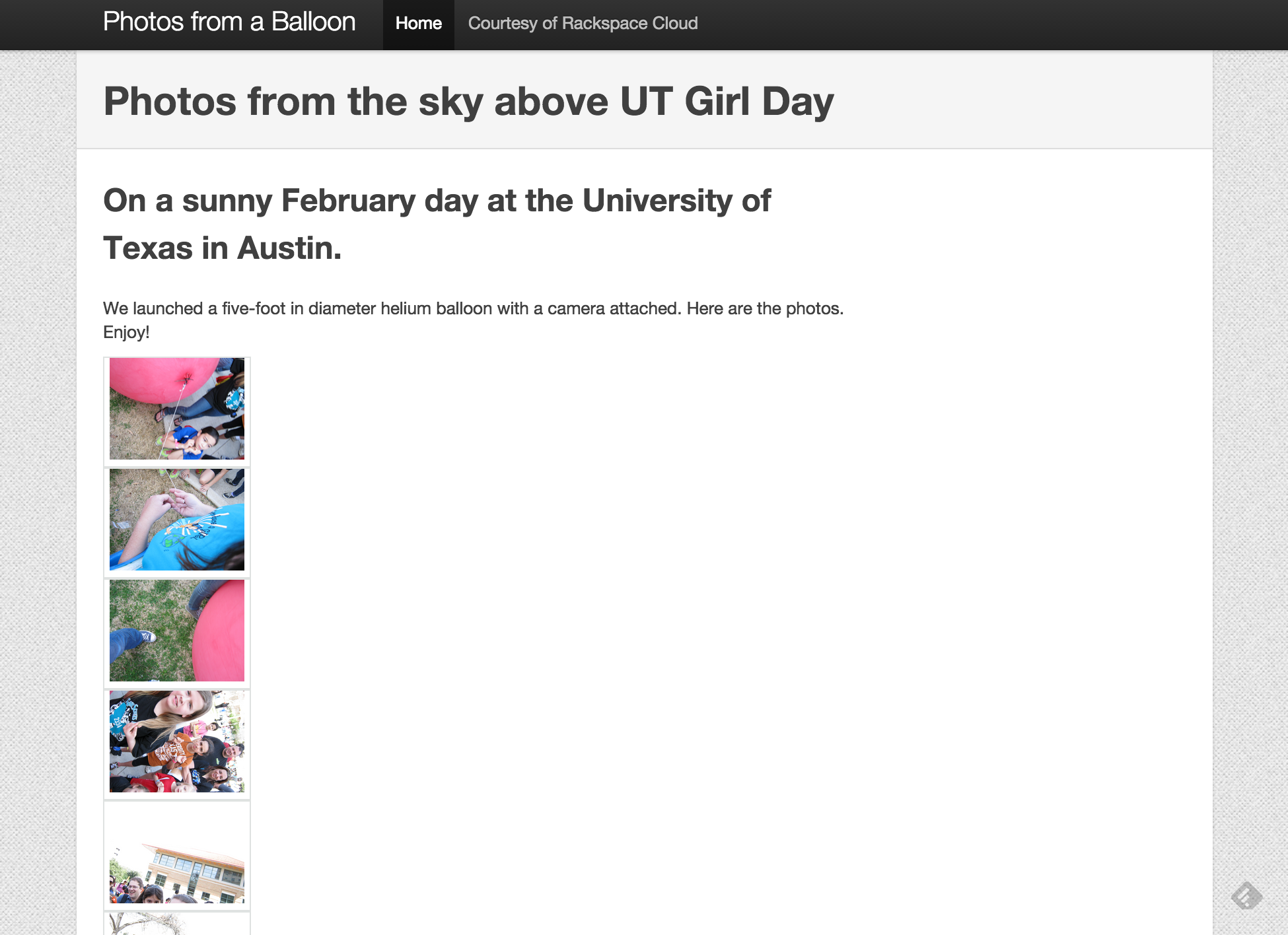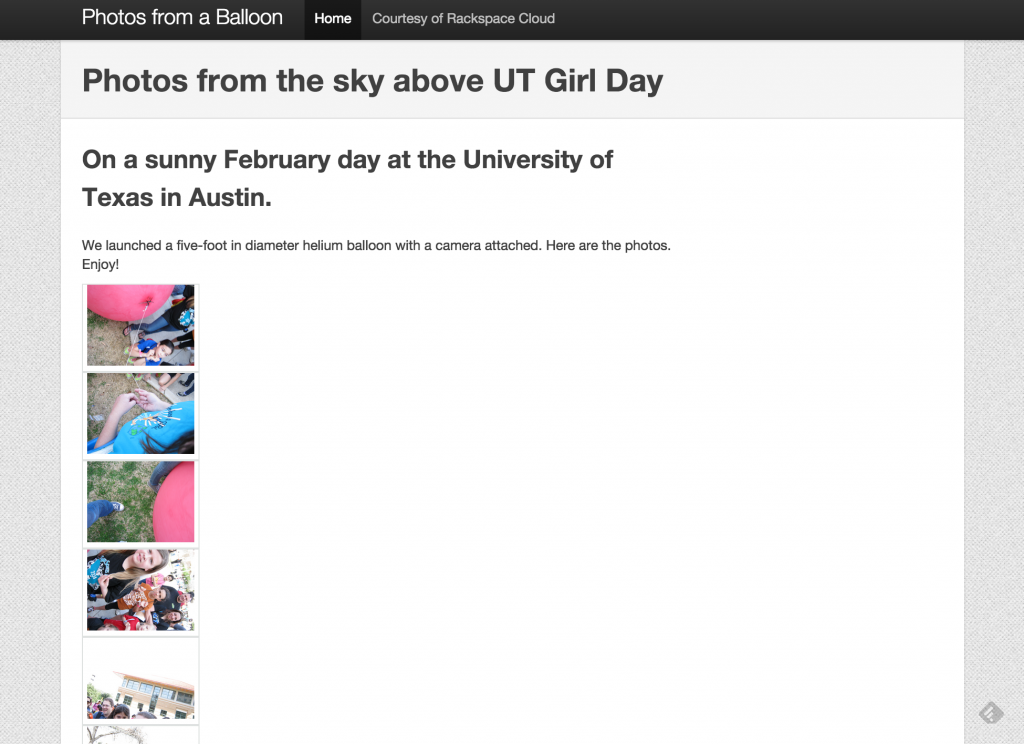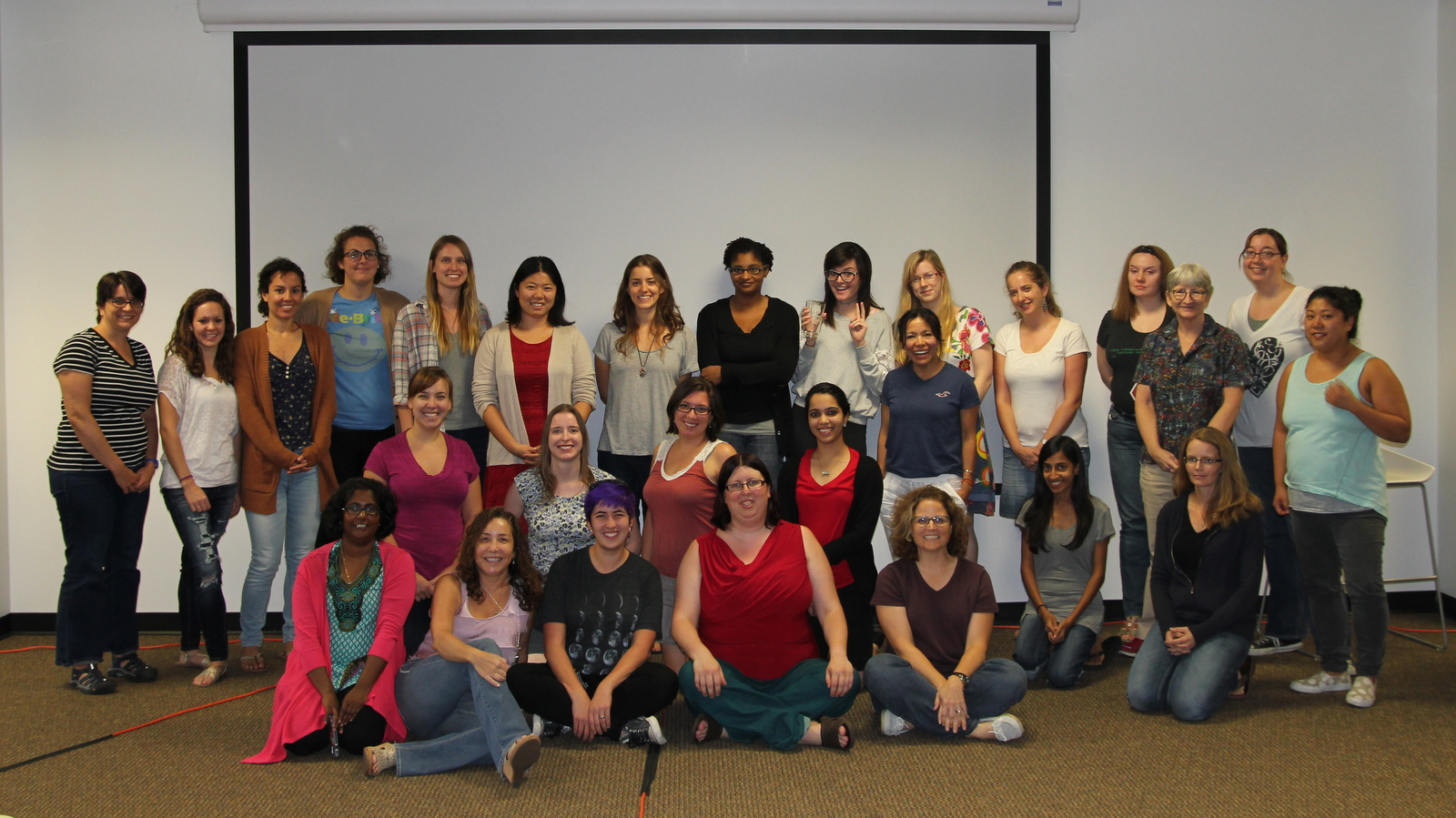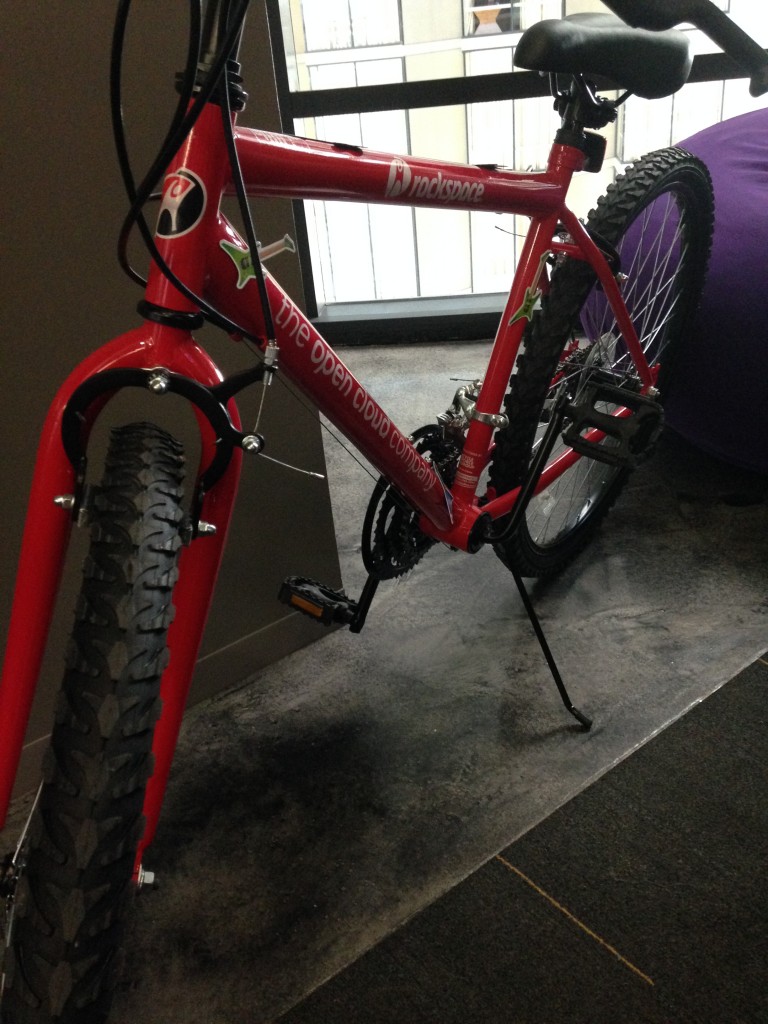
I’ve participated in a few hackathons in the past year, since I’ve been working on a team of developer advocates at Rackspace. I wanted to chronicle some of my experiences with a few goals in mind: recording memories for myself, letting others get ideas for the wide range of hackathons, and chronicling the wide variety of types of hackathons and outcomes of hackathons.
For a bit of context, I’m female, have a family and weekend obligations that include sports practices, and I’m a generation-Xer if that gives you a sense of my age (with a range). I’ve definitely read and enjoyed a lot of articles about women and inclusive hackathons, “Running an Inclusive Hackathon: How to get better representation at your hackathon and recently about “grownups” and hackathons, “Why I don’t like hackathons, by Alex Bayley aged 39 1/2. I appreciate a well-run, inclusive hackathon for my own participation, but I also see a need for well-run, inclusive college-age hackathons.
Internal Hackathon at Rackspace

This was a bunch of fun for me to dig into one of our SDKs (Python and pyrax) and services (Cloud Files) to make a gallery of photos from a balloon photography project we did for a girls in engineering day at the University of Texas. This project has had some re-use in demonstrating to school-age students about what code for the cloud looks like and it offers a nice demonstration since it’s visual. I sat next to another developer advocate who helped me break the idea into parts that I could manage more easily with my rudimentary coding skills. It was a ton of fun and at the end of the day I didn’t demo it for a group but did show it to our vice president who was walking around to see what we were working on. The hackathon was held in the office after another technical event during work hours, so it was easy to make it part of my day.
Austin Ladies Hackathon
This one involved a lot of time from a fun event Friday night to form teams and included hacking on two weekend days. I served as a mentor for teams in this hackathon rather than participating myself. It wasn’t the time investment that prevented me from participating, it was just my role to mentor rather than hack. I have a write-up on the Rackspace Developer Blog.

Slashathon at SXSW Interactive
This event was one of the highlights of my week at SXSW Interactive, as a bookend with a really neat experience interviewing a woman on the StartUp Bus, Nicole Dominguez.
After the last day of SXSW Interactive, we all arrived at Capitol Factory in the morning for the hackathon. I was toting a Rackspace red bike and scheduled to be a developer mentor for the Rackspace Cloud APIs for the morning session.
Everett Toews and I both work on the developer relations group at Rackspace, and he gave a presentation about how to hack the hackathon by using our cloud services. The other presenters really piqued my interest in metadata about music, bands, albums, and artists headphone hardware advances (hacking headphones are amazing!), cool uses of location and proximity hardware devices, all of the technology really makes ideas fire off in your brain. We came up with an idea collaboratively with four of us – Everett, and two web developers from Harvard Business Review who had to catch afternoon flights. We wanted to create a site for seeing on a map where your favorite band or musician is, with related Tweets and social media posts and the ability to buy tickets for their next gig. Everett presented to the panel of judges – Slash himself, Robert Scoble, and the guy who invented bittorrent, Bram Cohen. It went over really well! The winner had some cool hardware that helped enhance a concert experience and second place went to a Google Glass app that performers could wear to measure the decibels of audience noise. LoudWire covered the event in a post.
Types of Hackathons
I definitely see a difference between hackathons for college-age or students and for working adults or non-traditional students. There are also hardware hackathons versus software hackathons or hackathons with a specific theme, such as the Slashathon that featured music or audio hardware and music-based APIs. There should be a hackathon for many interests, then it’s a matter of determining your own goals for participating.
Outcomes of Hackathons
I think there are different types of outcomes: projects by participants, learning by participants, and then for sponsors and mentors, recruiting and learning more about participants or testing their products. The outcomes I don’t like to see are companies trying to get hard work for “free” or with little investment, or participants focusing too much on winning prize money.
What do you think about hackathons lately? What are your experiences? I’d love to hear more from others experiencing hackathons as a participant and as a sponsor and mentor.
